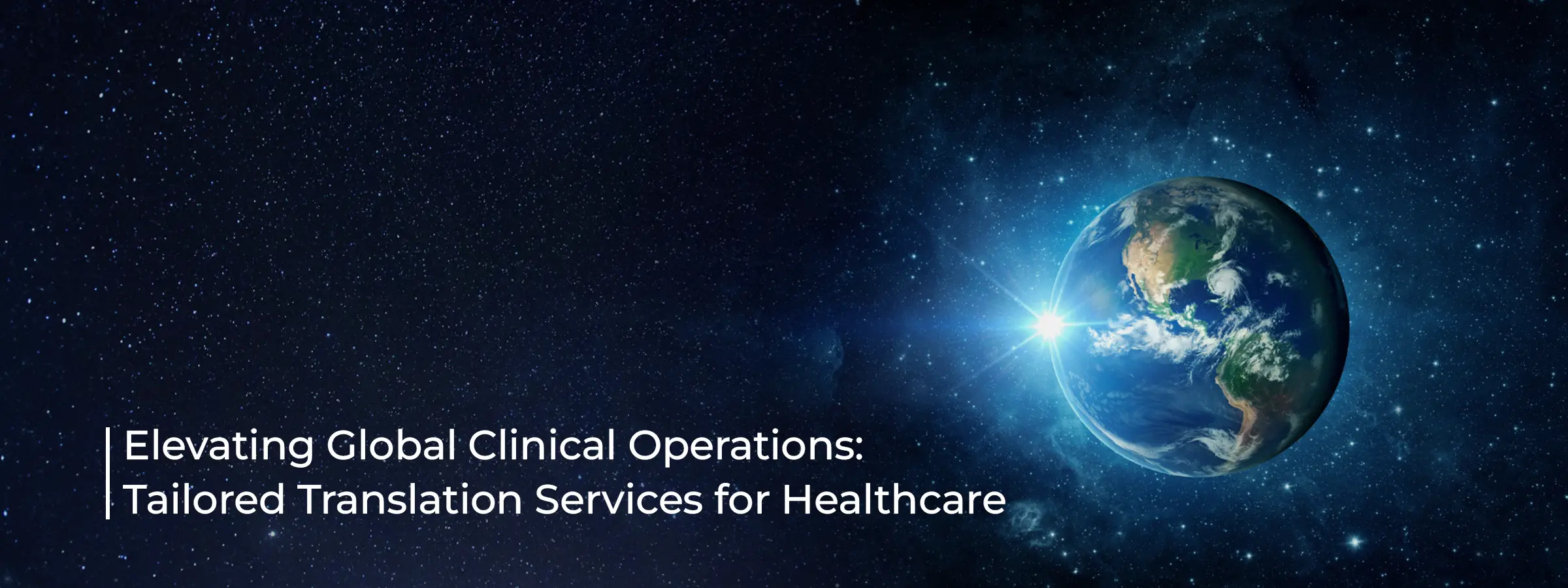
In the rapidly expanding global healthcare market, healthcare companies face significant challenges in ensuring that their services, products, and materials are accessible and comprehensible to diverse, multilingual populations.
Healthcare companies operate globally, where the need for accurate, culturally sensitive, and timely translation of medical documents, patient information, and regulatory compliance materials is critical. Despite the advancements in translation technology and services, healthcare companies still face significant challenges:
• Regulatory Compliance: Navigating the complexities of healthcare regulations across different countries requires language translation and an understanding of local legal and regulatory nuances. Ensuring translated materials comply with these regulations is paramount for avoiding legal pitfalls and safeguarding patient health.
• Medical Accuracy: The need for precise translation of medical terminology and instructions is crucial. Errors can have dire consequences, including misdiagnosis, improper treatment, and patient harm.
• Cultural Sensitivity: Translated materials must be culturally appropriate and sensitive to diverse patient populations' beliefs, practices, and social norms to ensure effective communication and patient care.
• Timeliness: The healthcare sector often requires rapid translation services for emerging health crises, new medical treatments, and evolving regulatory guidelines, where delays can hinder patient access to necessary care.
• Patient Confidentiality: Protecting patient privacy while handling sensitive medical documents across languages adds another layer of complexity to translation services.
• Access to Specialized Translators: There is a shortage of translators who specialise in medical and healthcare fields, further complicating the timely and accurate translation of documents.
• Quality and Accuracy: Ensuring the highest level of accuracy in translating medical terminology, patient materials, and clinical documentation to avoid misinformation, which could lead to poor patient outcomes or legal liabilities.
• Scalability: Quickly localising extensive content in response to global health crises or for entering new markets, meeting both the scale and speed required without compromising quality.
• Confidentiality and Security: Maintaining the confidentiality and security of sensitive patient data and proprietary information during the translation process, adhering to data protection laws and standards.
• Cost-Effectiveness: Managing the costs associated with providing comprehensive and high-quality translation services across multiple languages, while still ensuring accessibility and equity in healthcare delivery.
• Technology Integration: Seamlessly integrating translations into healthcare technologies, such as electronic health records (EHRs), telehealth platforms, and mobile health applications, enhancing user experience and utility across different languages.
To address these challenges, healthcare companies need a comprehensive and strategic approach to translation services:
• Partner with Specialized Language Service Providers (LSPs): Work with LSPs who specialise in healthcare translations and have a track record of regulatory compliance and accuracy in medical terminology.
• Develop a Global Regulatory Compliance Framework: Establish a translation process framework incorporating regulatory requirements from all operational regions. This framework should be designed with the flexibility to adapt to new regulations.
• Utilize Technology and Human Expertise: Leverage advanced translation technologies, such as AI-powered translation tools with medical terminologies, alongside human translators for nuanced, context-sensitive, and accurate translations through LSP Partners.
• Cultural Adaptation Services: Implement services to ensure that all translations are culturally adapted, not just linguistically accurate. This involves expert translators and cultural consultants who understand the target culture deeply.
• Rapid Response Teams: Create a framework with LSP Partners to mobilise specialised translation teams quickly for urgent healthcare translation needs, ensuring timely access to critical medical information.
• Strict Confidentiality Protocols: Implement stringent data protection measures and confidentiality agreements with language service providers to safeguard patient information across all languages and comply with data protection regulations such as HIPAA in the U.S. or GDPR in Europe.
• Ongoing Training and Development: Partner with LSP, which invests in continuous training of the latest medical advancements, terminology, and regulatory changes to ensure up-to-date knowledge and skills.
• Quality Assurance Processes: Establish rigorous quality control measures, including peer reviews and back-translations, to maintain the highest standards of accuracy and reliability.
• Community Feedback Mechanisms: Engage with multilingual communities and healthcare professionals to gather feedback on translations, improving the quality and relevance of healthcare materials.
By implementing these solutions, healthcare companies can overcome the significant challenges of translation in a global healthcare environment, ensuring accurate, compliant, and culturally appropriate communications for better patient outcomes and global operations.
This will improve the accessibility, quality, and effectiveness of their services across diverse global populations, facilitating better health outcomes and expanding their international reach.
© 2024 WHITE GLOBE GROUP PVT LTD